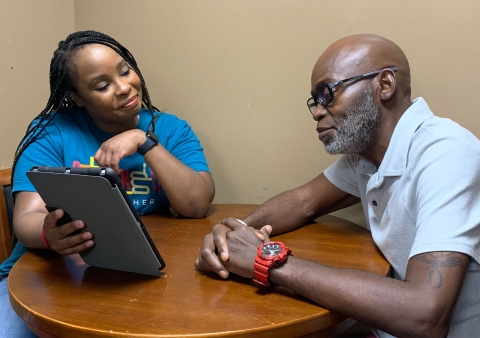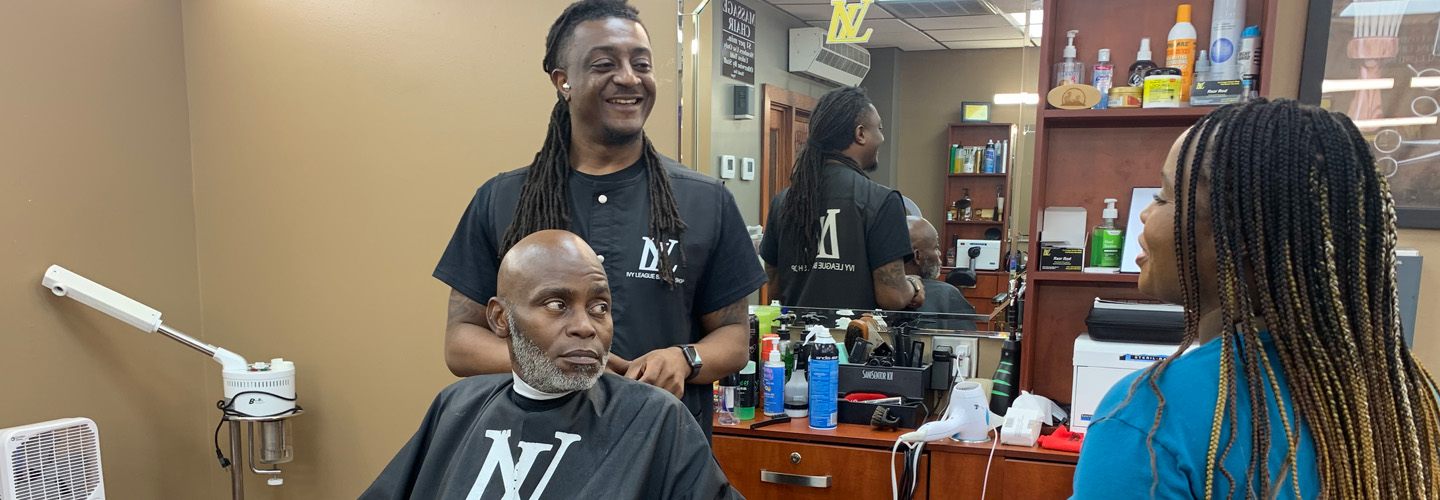Reducing Alcohol Use among Black Men: Barbershop SBIRT
ClinicalTrials.gov link
Learn more about Barbershop Talk
Diseases or Conditions Being Studied
Drinking behavior, drinking excessive, drinking
Communities of Focus
Black adults 18 years or older
Study Site
Arkansas
Study Objectives
Test the effectiveness of a Screening, Brief Intervention, and Referral to Treatment (SBIRT) intervention for use within barbershop settings to reduce average drinking days and the number of unhealthy drinking days.
Intervention or Treatment
Each intervention barbershop, will hold screening days, where a trained community health worker will be onsite to provide Screening, Brief Intervention, and Referral to Treatment (SBIRT). Low risk individuals will receive an educational pamphlet about alcohol use and the impact on health. Moderate Risk individuals will receive a brief alcohol intervention. High risk individuals will receive the brief alcohol intervention and be referred to specialty treatment.
Abstract

Unhealthy drinking is considered one of the top 10 public health concerns in the United States. Not only has heavy drinking been linked to poorer overall health, it is responsible for about 88,000 deaths and 2.5 million years of potential life lost in the United States each year. Men exposed to social disadvantage, such as Black men living in poverty, are more likely to consume more alcohol. Indeed, in Arkansas, a state with high rates of unhealthy drinking, Black men who make less than $35,000 are more likely to report heavy drinking (4 or more drinks a day) and consume more drinks when binge drinking. Further, the negative impacts of unhealthy drinking may be worse for Black men. Black men who report consuming large amounts of alcohol often experience more severe health outcomes and more negative social consequences when compared to other ethnic groups.
Screening, Brief Intervention, and Referral to Treatment (SBIRT) is an evidence-based, multilevel, integrated, public health approach to the delivery of early intervention services for individuals at risk for risky drinking, and the timely referral to more intensive treatment for those who have substance abuse disorders. SBIRTs have been effectively implemented in both primary care and emergency care settings. However, structural barriers to care (i.e., insurance status, culturally competent services, racism and discrimination, etc.) may impede Black men's access to evidence-based care for unhealthy drinking located in medical settings. Given the increased risk for mortality and morbidity associated with unhealthy drinking among Black men living in poverty, coupled with the more harmful health consequences of unhealthy drinking for Black men, improving equitable access to evidence-based care by implementing care into community settings that Black men are more likely to access is urgently needed.

Thus, the goals of this proposed Hybrid Type 2 pragmatic effectiveness-implementation trial are to: 1) test the effectiveness of a previously developed, evidence-based SBIRT intervention (Barbershop Talk) for low income African American men; and 2) generate the scientific evidence needed to disseminate SBIRTs to “real world” settings. Data from this study will further our understanding on how to reduce the risk of alcohol attributable morbidity and mortality among Black men living in poverty. Data will also improve our understanding of strategies that can improve implementation of evidence-based care models in non-clinical settings; thus, extending the reach of evidence-based care to communities with the highest need.









